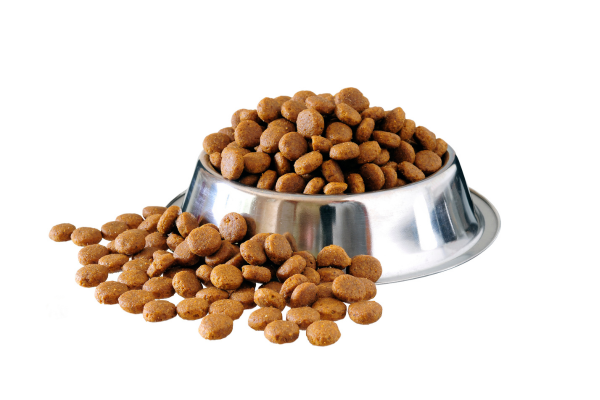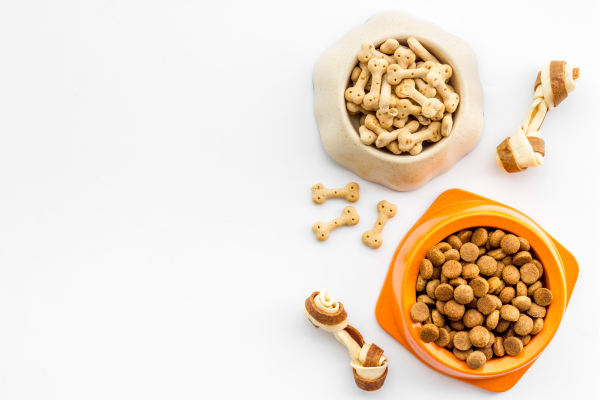How much do Chihuahuas eat? Many families love these tiny dogs for their lively personalities and small size. Despite their joy, Chihuahua fans often wonder how much they eat. Responsible pet ownership requires understanding Chihuahua diets. Although small, these dogs have unique metabolisms and nutritional needs that must be considered.
This diet study examines Chihuahua’s appetite, recommended daily food intake, overfeeding and underfeeding, and treats. Join us as we discover the culinary mysteries of our beloved Chihuahuas and feed them for a happy, healthy life.
Understanding Chihuahua’s Size and Metabolism
Chihuahuas have a special place in the hearts of dog lovers worldwide because of their small size and undeniable charm. These little dogs, who only weigh a few pounds, have a metabolism closely linked to their small size, which excitingly affects their dietary needs.
✅The Small Size Conundrum
Chihuahuas are tiny, which makes them unique compared to other dog breeds. Not only is their small size cute, but it also makes things tricky for their metabolism. Compared to more giant breeds, which may have a slower metabolism, Chihuahuas have an amazingly fast one. Because they are so small, they have a speedy metabolism, an essential part of processing and using nutrients.
✅The Need for Speed: Higher Metabolism in Smaller Dogs
For example, Chihuahuas and other small dog breeds have faster metabolisms than larger ones. They burn calories faster to keep their body temperature steady, their organs working, and their overall energy levels up. The effects of their fast metabolism are significant when you consider what they need to eat.
Chihuahuas need to eat many healthy foods to keep up with their fast metabolism. They need high-quality proteins, essential fats, vitamins, and minerals to get the energy they need. Not meeting these needs can cause them to lack nutrients, affecting their health and vitality.
✅Tailored Nutrition for the Tiny Tummies
It’s essential to give Chihuahuas food specially made for them. Because they have small stomachs, they need to eat a diet that is both high in nutrients and carefully portioned to meet their energy needs without making their bodies too heavy. To make sure that every bite has the right amount of nutrients, dog owners must choose food that is made just for small breeds.
Dogs like Chihuahuas should eat various healthy fats, high-quality proteins, and carbs throughout their diet. Protein is essential for helping their muscles grow and maintaining lean body mass. Essential fatty acids, like omega-3 and omega-6, help keep the fur and skin of these little dogs healthy, which is very important.
✅Unveiling the Energy Levels: Why It Matters
People love Chihuahuas because they are active and like to play. These little dogs need a steady supply of energy to keep them going, whether searching for things or playing fetch with a lot of energy. Eating right helps them get things done and is also suitable for their health in general.
Customized nutrition for Chihuahuas is more than just giving them the necessary calories. It is also part of making sure the nutrients they eat are suitable for their health and accessible for their bodies to absorb. They stay active and at a healthy weight if they eat foods that speed up their metabolism. This also lowers their risk of health problems when small breeds are overweight.
Finding a link between how small Chihuahuas are and how fast they burn calories helps us understand how to feed dogs properly. To give these little dogs the necessary care, you should determine what they need to eat. Ensuring that each Chihuahua gets the right food is integral to keeping their energy up, healthy, and living a whole and happy life.
Factors Influencing Chihuahua’s Appetite
Understanding a Chihuahua’s appetite is more complicated than looking at its small size and fast metabolism. Age, activity level, and health conditions are all critical factors that affect what one needs to eat.
✅Age

Puppies💡
- Like their bigger siblings, Chihuahua puppies grow and develop quickly in their first few months. Food choices should help them build strong bones, muscles, and an immune system. Formulas made just for puppies with more protein and essential nutrients are needed to meet these needs. Small meals often keep their little stomachs full and give them energy all day.
Adults💡
- Chihuahuas’ nutritional needs change as they become adults. It becomes essential for them to eat a balanced diet that keeps their energy up and stops them from gaining too much weight. Good proteins, healthy fats, and portion control all help their health. To keep their small breeds from getting overweight, owners should keep an eye on their pets’ weight and change the size of their meals.
When they get older, Chihuahuas may notice that their metabolism slows down and their activity levels change. A diet for seniors considers that they use less energy and any health problems that might arise from aging. When planning a senior Chihuahua’s food, it’s essential to consider joint support supplements, easy proteins for the dog to digest, and controlled phosphorus levels.
✅Activity Level

Even though they are small, Chihuahuas are known for having a lot of energy. Their caloric needs are greatly affected by how much energy they use when they play and exercise. People who walk or play with their Chihuahuas daily should ensure that their dog’s food matches the extra energy they use. Changing the size of your portions or adding healthy treats can help you keep the balance between the calories you eat and the calories you burn.
Chihuahuas that don’t move around much, like those whose owners don’t do much, may need fewer calories to stay healthy. To avoid health problems related to obesity that can lower their quality of life, they need to ensure that their diet fits with how active they are.
✅Health Conditions

Like dogs of any breed, chihuahuas can have health problems that make them unable to eat. Dental problems and digestive problems are two every day worries.
Dental Problems💡
- A Chihuahua’s ability to eat comfortably is directly linked to how well its teeth are cared for. If you have dental problems like cavities or gum disease, they can hurt and make you not want to eat. Dental health and a healthy appetite can be maintained by eating foods good for your teeth, including dental treats, and going to the dentist for regular check-ups.
Digestive Issues💡
- Changes in appetite can happen if you have a sensitive stomach or a digestive disorder. When this happens, a vet might suggest special diets or ingredients that are easy on the digestive system. To ensure a Chihuahua gets the nutrients it needs without pain, it’s essential to understand and treat digestive problems.
As owners of these small pets, it’s essential to know that a Chihuahua’s appetite changes constantly and is affected by many things. For holistic care to work, their diet must be adjusted based on age, activity level, and health. By understanding these factors, Chihuahua owners can make custom feeding plans for their dogs that meet their nutritional needs and improve their health and well-being.
Recommended Daily Food Intake for Chihuahuas
Understanding the recommended daily food intake for Chihuahuas is crucial in ensuring their well-being. This section delves into general guidelines for calorie intake, the significance of choosing high-quality, age-appropriate dog food, and offers a sample feeding schedule for these pint-sized companions.
✅General Guidelines for Daily Calorie Intake

Determining the appropriate daily calorie intake for a Chihuahua involves considering various factors such as weight, age, and activity level. As a rule of thumb, Chihuahuas typically require 40 to 50 calories per pound of body weight. However, individual variations exist, and adjustments may be necessary based on specific circumstances.
- Weight: A healthy weight is essential for Chihuahuas, and their calorie intake should be tailored to maintain this balance. For instance, a Chihuahua weighing around 5 pounds may require approximately 200 to 250 calories daily.
- Age: Caloric needs evolve throughout a Chihuahua’s life stages. Puppies, adults, and seniors have distinct nutritional requirements. Consulting with a veterinarian can provide precise recommendations based on the dog’s age and developmental stage.
- Activity Level: Active Chihuahuas burning more calories through play and exercise will require a higher caloric intake than their less active counterparts. Adjustments should be made to accommodate the energy expended during daily activities.
✅Importance of High-Quality, Age-Appropriate Dog Food

Selecting the right dog food is paramount in meeting the nutritional needs of Chihuahuas. High-quality, age-appropriate formulations ensure they receive essential nutrients in the proper proportions. Look for the following features when choosing dog food for Chihuahuas:
- Protein Content: Chihuahuas thrive on diets rich in high-quality proteins. Opt for dog food with animal-based protein sources to support muscle development and overall health.
- Healthy Fats: Essential fatty acids contribute to a Chihuahua’s coat and skin health. Look for sources like fish oil or flaxseed to maintain a lustrous coat.
- Carbohydrates: Easily digestible carbohydrates provide a steady source of energy. Whole grains and vegetables are excellent choices for Chihuahuas.
- Avoid Fillers: Minimize fillers like corn or soy, as these provide limited nutritional value and may contribute to excessive caloric intake.
✅Sample Feeding Schedule
Creating a structured feeding schedule ensures consistency and helps prevent overfeeding or underfeeding. Here’s a sample feeding schedule for an adult Chihuahua:
- Morning (7:00 AM): 1/4 to 1/3 cup of high-quality dry dog food.
- Midday (noon): A small portion of a healthy snack or treat (considering the daily calorie intake).
- Evening (5:00 PM): 1/4 to 1/3 cup of high-quality dry dog food.
- Nighttime (9:00 PM): Access to fresh water.
Change the serving sizes based on the Chihuahua’s weight, age, and activity level. The feeding plan can be tweaked as needed by regularly monitoring the weight and body condition.
Figuring out how much food a Chihuahua should eat every day means carefully balancing calories, nutrition, and set feeding times. People who own Chihuahuas can help them stay healthy and happy by choosing a high-quality dog food that is right for their dog’s age, weight, and activity level.
Signs of Overfeeding or Underfeeding
Ensuring that a Chihuahua receives the right amount of food is a delicate balance that requires keen observation. In this section, we’ll explore the telltale signs of overfeeding or underfeeding, stress the importance of weight monitoring, and underscore the role of regular veterinary check-ups in maintaining a Chihuahua’s optimal health.
✅Signs of Overfeeding

- Weight Gain
- One of the most apparent signs of overfeeding is increased body weight. Chihuahuas are prone to obesity, and excess calorie intake can quickly lead to weight gain. Owners should regularly assess their Chihuahua’s body condition to ensure they remain within a healthy weight range.
- Lethargy
- If a Chihuahua appears lazy or unwilling to engage in everyday activities, it may be a sign of overfeeding. Excess calories can lead to a lack of energy and vitality, affecting the dog’s overall well-being.
- Digestive Issues
- Overfeeding can cause digestive problems such as diarrhea or vomiting. If a Chihuahua is consistently experiencing gastrointestinal issues, it may indicate that their diet needs adjustment.
- Difficulty Breathing
- Obesity can lead to respiratory issues, particularly in small breeds like Chihuahuas. Labored breathing or increased panting may suggest the dog is carrying excess weight.
✅Signs of Underfeeding

- Weight Loss
- A noticeable drop in body weight indicates that a Chihuahua may not receive enough food. Underfeeding can lead to malnutrition and a weakened immune system.
- Reduced Energy Levels
- An underfed Chihuahua may exhibit low energy levels, becoming less playful and more lethargic. This could impact their ability to engage in regular activities.
- Obsessive Eating Behaviors
- If a Chihuahua is constantly scavenging for food or appears overly focused on mealtime, it may be a sign that they need to get more to eat.
- Dull Coat and Poor Skin Condition
- Inadequate nutrition can manifest in the dog’s coat and skin. A lackluster coat or skin issue may indicate nutritional deficiencies.
✅Monitoring Weight and Adjusting Portions
Checking a Chihuahua’s weight regularly is a proactive way to keep their health in good shape. If the animal’s condition changes, its owners should be aware of it and change the portion sizes to match.
Reducing daily calories and doing more physical activity can help if weight gain is seen. If, on the other hand, the pet loses weight, it is essential to talk to a vet about changing the diet or taking care of any underlying health problems.
💡Role of Regular Veterinary Check-Ups
Regular visits to the vet are essential for keeping a Chihuahua healthy. During these visits, veterinarians can check the dog’s weight, health, and overall well-being. Depending on the Chihuahua’s needs, age, and health, they may give you personalized advice on changing its diet.
During regular check-ups, veterinarians can also find any underlying health problems that could make the dog lose weight or lose its appetite. Issues with the Chihuahua’s teeth or stomach can be taken care of quickly, which improves overall health and happiness.
Watching how much food a Chihuahua eats requires more than just measuring cups. You need to be very aware of the subtle signs of a dog getting too much or too little food. Chihuahua owners can help ensure their furry friends live healthy, happy lives by paying attention to these signs, adjusting their pets’ food portions as needed, and ensuring their dogs get regular check-ups with the vet.
Treats and Snacks for Chihuahuas
Treats and snacks play a significant role in a Chihuahua’s diet, offering more than just a momentary delight. In this section, we’ll explore the importance of treats, guide on choosing healthy snacks, and emphasize the need for mindful indulgence to maintain a balanced daily intake.
✅The Role of Treats in a Chihuahua’s Diet

What treats do for Chihuahuas other than making them happy is essential to them. They help with training, giving the dog positive feedback, and building a bond with the owner. Treats can be an excellent way to control and reward good behavior, but finding the right balance is essential to avoid eating too many calories.
✅Choosing Healthy Snacks

- Nutrient-Rich Options
- Opt for treats that offer nutritional value. Look for those containing quality proteins, such as lean meats or fish, and essential fatty acids to support coat and skin health.
- Size Matters
- Given a Chihuahua’s small size, choose treats that are appropriately portioned. Smaller treats ensure the overall daily calorie intake remains controlled, preventing overindulgence.
- Dental Health Benefits
- Incorporate treats with dental health benefits. Dental chews or treats designed to promote oral hygiene can contribute to maintaining healthy teeth and gums.
- Avoid Harmful Ingredients
- Steer clear of treats with excessive additives, preservatives, or artificial ingredients. These can contribute to unnecessary calorie intake and may not provide the health benefits sought from treats.
✅Avoiding Overindulgence
- Caloric Awareness
- No matter how small, treats contribute to a Chihuahua’s overall calorie intake. Be mindful of the caloric content of treats and factor it into the daily feeding plan.
- Limit Treats to Occasions
- Reserve treats for specific occasions or as rewards during training sessions. Avoid overindulging to maintain the nutritional balance of the main meals.
- Adjust Meal Portions
- If treats are a regular part of a Chihuahua’s routine, consider adjusting the size of their main meals to accommodate the additional calories from treats. The goal is to prevent overfeeding.
- Monitor Weight
- Regularly monitor the Chihuahua’s weight and body condition. If there is any indication of weight gain, reassess the treatment regimen and make necessary adjustments to maintain a healthy weight.
✅Accounting for Treat Calories

You must know that treats add to the dog’s daily calorie intake to keep your Chihuahua on a healthy diet. Instead of adding treats to regular meals, count them as part of your daily calorie limit. This method ensures the dog gets all the nutrients it needs without getting too many calories, which could cause weight problems.
Giving a Chihuahua treats and snacks can make its life more fun and strengthen its bond with its owner. But healthily giving treats is essential to keep a balanced diet and avoid overindulging. Chihuahua owners can find a good balance between treats and food for their dogs by choosing nutrient-dense foods, watching how much they give them, and adding treat calories to their dog’s overall feeding plan.
Conclusion
Chihuahuas are cute, so knowing what they need to eat is essential for responsible pet owners. From calculating their complex metabolism to considering age, activity level, and health issues, keeping these little friends healthy and happy is crucial.
After discussing how much food a dog should eat daily, why high-quality, age-appropriate dog food is essential, how to tell if your dog is overfed or underfed, and the purpose of treats and snacks, a personalized approach is needed. Chihuahuas are small, active dogs. Therefore, their nutritional needs and health must be carefully considered.
Owners should read their pets’ subtle signs, adjust their meals, and prioritize vet visits. This complete care plan for Chihuahuas ensures they get the proper nutrients, stay healthy, and thrive in a loving home.
Finally, learning what Chihuahuas should eat takes time, knowledge, and dedication. Understanding chihuahua appetites, feeding them the right foods, and sticking to a feeding schedule can help owners have a healthy, happy relationship with their cute little dogs. We hope our beloved Chihuahuas stay healthy and happy!
Here at ILoveChihuahua, we share our personal experiences as owners of this feisty breed. We talk about recommended methods, dog supplies picks, and advice on common Chihuahua problems. Our goal is to promote responsible dog ownership, so there would be fewer Chihuahuas in shelters.


